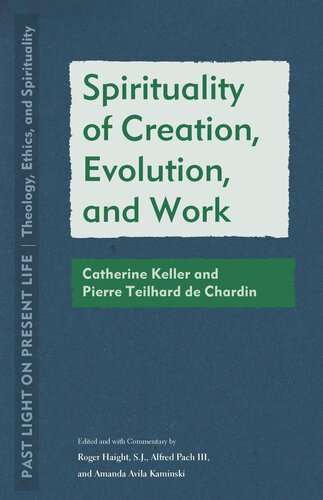

Most ebook files are in PDF format, so you can easily read them using various software such as Foxit Reader or directly on the Google Chrome browser.
Some ebook files are released by publishers in other formats such as .awz, .mobi, .epub, .fb2, etc. You may need to install specific software to read these formats on mobile/PC, such as Calibre.
Please read the tutorial at this link: https://ebookbell.com/faq
We offer FREE conversion to the popular formats you request; however, this may take some time. Therefore, right after payment, please email us, and we will try to provide the service as quickly as possible.
For some exceptional file formats or broken links (if any), please refrain from opening any disputes. Instead, email us first, and we will try to assist within a maximum of 6 hours.
EbookBell Team

4.0
76 reviewsTwo developments that occurred over the course of the nineteenth century had a strong impact on Christian theology: the first was a deepening of the implications of historical consciousness and the second was the impact of science on Christian self-understanding. Marx’s sociology of knowledge symbolizes the first; Darwin’s analysis of evolution the second. These intellectual developments gave rise to various forms of process philosophy and theology. Within this context, a dialogue between Christian theology and evolution has yielded dramatically new convictions and practices in Christian spirituality, especially relative to ecology. For over three decades Catherine Keller has been reflecting on the intellectual and practical effects that an internalization of the dynamic character of reality should have upon the practice of Christian life. Her text illustrates the basic framework of dynamic becoming that science demands, whether or not one is formally a process thinker. Pierre Teilhard de Chardin was an earlier figure who was more zeroed in on the phenomenon of evolution which he encountered in a distinct way as a Christian scientist trained in geology and paleontology, as distinct from biology or genetics. Evolution explicitly informs his spirituality. These two different Christian writers, the one representing the imaginative framework of being as process and becoming, the other focused on how evolution affects intentional spiritual life, open new perspectives on the spiritual character of people’s active lives of work and creativity in the world that science presents to us.
These books are introductory in character but deeply thoughtful in their interpretation of the Christian life. Traditional but refreshingly applicable to the present-day situation.